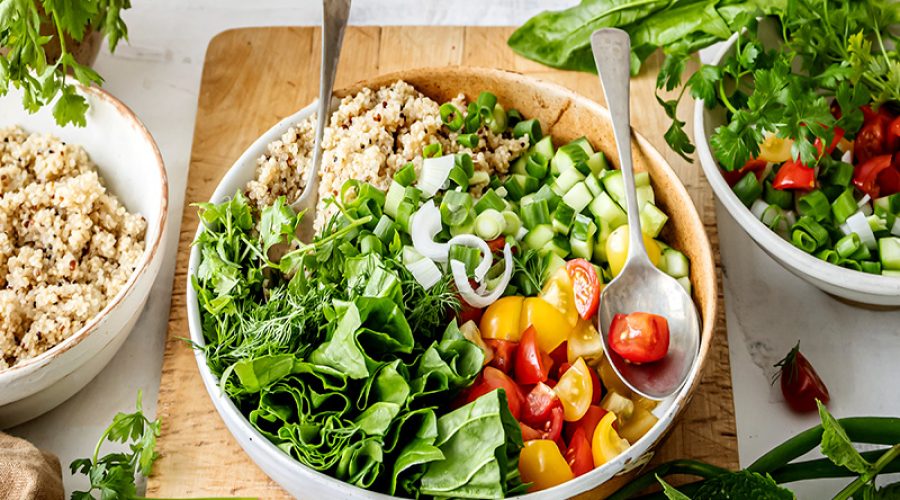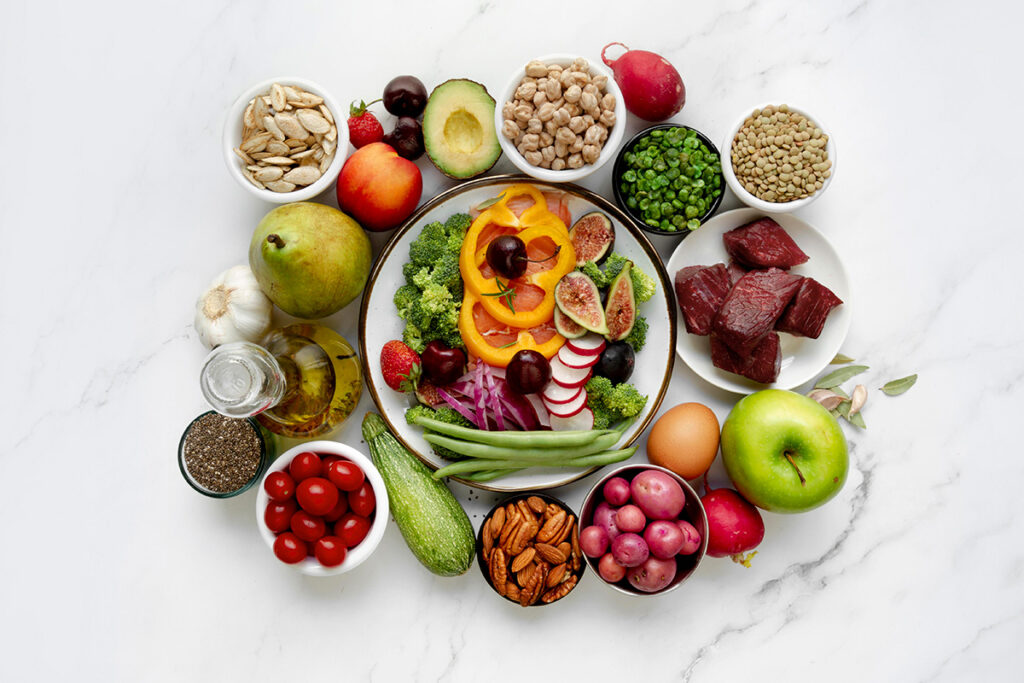Best Heart Healthy Diets
you should follow

ndia is facing a worrying trend in heart diseases. While heart disease was traditionally considered an old person’s disease, doctors are reporting that more than 40% of new heart cases are in people under 40 years of age. There are many reasons for this uptrend, and some factors like a person’s genetics and pollution where they live are not even in their control. The good news is that one of the biggest risk factors for heart disease are the eating habits of a person. Adopting a heart healthy diet is within our control, along with adopting an active lifestyle is the best way to prevent heart ailments. In this article, we will tell you 7 small changes you can make to incorporate heart healthy foods in your daily diet.

- Control the portion size: Overeating is the thing to avoid if you want a heart healthy diet. Mindless eating, often while watching mobile devices or television, has increased significantly in the past decade, as surveys suggest that 70% of meals are consumed this way. So, first thing for a heart healthy diet is to control the portion size of your meals. Here is how you can do it effectively in five simple steps:
- Avoid screen time while eating. You can afford to miss out on your favourite show or the news for 20 minutes, which is the average time to finish a meal.
- Visualize how much you actually want to eat before filling up your plate.
- Take half of what you have visualized on your plate.
- Start eating slowly. It is recommended that you should chew at least 30 times before you swallow the food.
- You can always take more if you’re still hungry after finishing your portion.
- Eat Veggies and Fruits: Our traditional Indian diet used to be heavy on vegetables and seasonal fruits, both of which are heart healthy foods. They provide vitamins and minerals to keep the body strong, and fiber to help keep our system clean. Doctors recommend that a person should eat at least 300 gm of vegetables & fruits daily. However, the per capita household vegetable and fruit intake in NSSO survey was found to be on average 145 and 15 g respectively for rural India, and 155 and 29 g for urban India. And this consumption was also dominated by potatoes for vegetables and banana for fruits. So, increase the consumption of veggies and fruits to match the recommended level.
- Eat only healthy fats, but in moderation: Fat & oil consumption should be around 20-25 gm a day and in a heart healthy diet plan most of this should come from healthy fats. Although the differences between good and bad fats are complex, a general rule for healthy fat intake is:
- The fat in heart healthy diet should be unsaturated fats. These are normally liquid at room temperature of 25-28 degree Celsius. Such kind of fats are less likely to clog up in your arteries.
- Avoid trans-fat. These are normally solid at room temperature. These are found in vanaspati ghee and packaged foods.
- Eat whole grains and diversify from wheat/rice: In India, wheat and rice have become the staple food grains. The problem of eating only these two grains is that you miss out on nutrition that are found in other grains like Bajra, Ragi etc, which were integral to our diet till a few decades back. Millets are heart healthy foods which are gluten free and have more fiber as compared to wheat. This means you can’t make delicious pooris from it. This is the reason why wheat became more popular as India grew more prosperous. A heart healthy diet plan also needs that we eat these grains in whole form. This can be done by switching from packaged atta to eating local chakki atta as well as increasing consumption of foods like daliya, oats etc.
- Limit your salt: Heart troubles usually originate because of high blood pressure. And one of the biggest contributing factor for high blood pressure is excess salt intake. World Health Organization (WHO) recommends a daily intake of 5 gm of salt, while in India this is 8-11 gm on average. This high salt consumption combined with the fact that Indians are genetically predisposed to high BP means a higher risk for heart failures. The easiest way to a heart healthy diet is to reduce your salt intake. One way is to measure out an entire day’s salt in a different bowl and not exceed your usage more than that. Gamification of this type has been proven to boost adherence to habit formation.
- Avoid sugar: Sugar is something that should not be part of a heart healthy diet. Excess sugar consumption is linked to diabetes and weight gain, which are directly related to an increased risk of heart disease. Apart from that, sugar has an inflammatory effect on the heart muscles. Doctors recommend not more than 25 gm of sugar in a day. One observation in NSSO survey is that per capita sugar consumption in Indian households is very low but the overall sugar consumption per capita is high. This clearly suggests that excess sugar is being consumed via packaged foods, drinks and outside food. Sticking to homemade meals is your best bet for having foods for high blood pressure as well as weight control.
- Increase protein intake: Proteins are the building blocks of our body required for tissue repair, muscle growth and energy. It is recommended that a person should have 1 gm of protein per kg of body weight. Indian diet, due to a heavy reliance on carbohydrates and vegetarianism, is low in protein. An increased consumption of eggs, meat, fish etc. can be used to rectify this and help you in achieving your heart-healthy diet. It’s important to stress that vegetarianism is not the reason for protein deficiency. Vegetarians can also increase their protein consumption by increasing nuts, daal, soyabean, bajra, etc.
The seven steps we have listed are the basics of having a heart healthy diet plan. There are many different ways in which these very steps are packaged and marketed by the diet and fitness industry. Sometimes it’s called Mediterranean diet, sometimes DASH (Dietary Approaches to Stop Hypertension), TLC (Therapeutic Lifestyle Changes) Diet, Flexitarian Diet etc. You can go to expensive dieticians and get these or you can follow the simple list that we have put for you. Either way, please adopt a heart healthy diet to have a strong heart and happy life.
Frequently Asked Questions
Good digestion ensures proper nutrient absorption, strengthens immunity, and boosts energy levels. It also prevents complications like weight gain, hormonal imbalances, and chronic diseases.
Consider the insurer’s financial stability, claims process, coverage terms, and inclusion of services like teleconsultation and diagnostic tests. These factors ensure smooth access to care and timely claim settlements.
Poor digestion can cause nutrient deficiencies, weakening the immune system and leading to fatigue. It’s also linked to weight gain, diabetes, and mental health issues.
Adopt a balanced diet rich in fiber and fermented foods, quit smoking, avoid alcohol, exercise regularly, and manage stress to support healthy digestion.
It offers comprehensive benefits, including hospitalization, diagnostic tests, and teleconsultation, with a reduced waiting period for pre-existing conditions and cashless treatments.
Hi, my name is Om, and I am a developer at Carepal Secure. With a strong passion for technology and innovation, I enjoy creating effective solutions and learning new skills to enhance my expertise. My journey in development has been both challenging and rewarding, allowing me to grow professionally while contributing meaningfully to the projects I work on.












